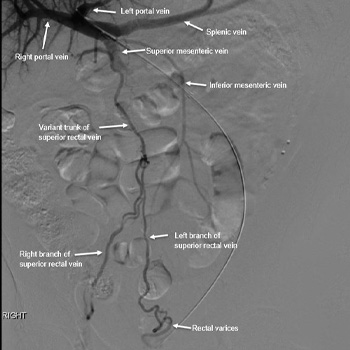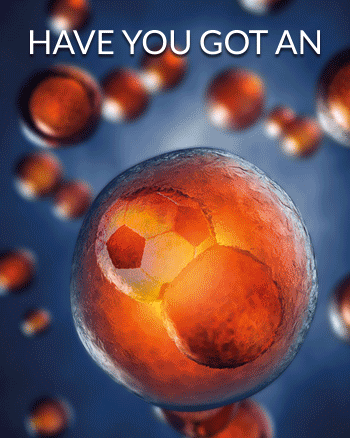Keywords
Rectal varices, embolisation, varices coiling
Abstract
A 57-year-old male with heart failure and decompensated alcoholic liver cirrhosis presented with recurrent haematochesia due to rectal varices. After multiple failed therapy with endoscopic band ligation and surgical sclerotherapy, a discussion with an interventional radiologist was arranged. A transjugular intrahepatic portosystemic shunt (TIPS) was deferred due to a history of heart failure. A shared decision to proceed with transhepatic Gelfoam® slurry embolisation with coiling was made. During the procedure, a variant anatomy of the superior rectal vein was identified. The superior rectal vein was found to drain directly into the left portal vein with no connectivity between the inferior mesenteric vein and the rectal varices. As planned, Gelfoam slurry embolisation and coiling was done to the left and right superior rectal vein along with the common trunk it drains. The patient did not develop any further episodes of gastrointestinal bleeding or worsening ascites on follow-up after 6 months. This case represents a successful treatment of bleeding rectal varices when TIPS is contraindicated.
References

Views: 374
HTML downloads: 175
PDF downloads: 351
Published:
2023-06-12
Issue:
2023: Vol 10 No 7
(view)










